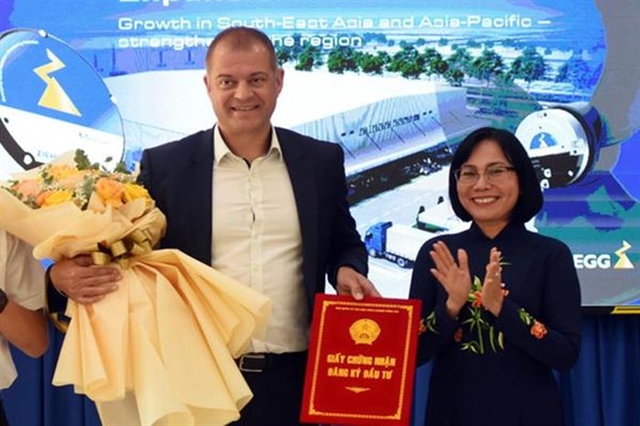The committee's vice chairwoman Nguyen Thi Hoang praised the two large-scale projects, saying that they would play an important role in speeding up local economic development.

The People's Committee of the southern Dong Nai Province granted investment certificates to two foreign-invested projects worth US$30 million on Tuesday.
German Ziehl-Abegg SE will develop a $20 million plant to manufacture products related to ventilation systems. The plant is slated to be completed in late 2024.
Meanwhile, HKC Overseas Limited from China will implement a TV screen-producing factory valued at $10 million.
The committee's vice chairwoman Nguyen Thi Hoang praised the two large-scale projects, saying that they would play an important role in speeding up local economic development.
She suggested investors focus on environmental protection to work with local authorities towards green and sustainable industrial development in the process of implementing their projects.
Hoang added that local authorities would constantly make efforts to create an open, safe, transparent investment environment, offering businesses maximum support and considering their development as the province's success.
The province-based Industrial zones (IZs) have thus far this year attracted 37 new foreign-invested projects with a total registered capital $144.6 million, statistics from the Dong Nai IZs Authority showed.
During the period, 52 operating projects were allowed to increase capital by $545.7 million.
Dong Nai now has 1,585 valid foreign-invested projects, with a total capital of $33.8 billion, being one of the leading localities in the country, in terms of foreign investment attraction.
By the year-end, the province said it would continue to attract large-scale projects using advanced technology, skilled workers, and those in supporting industries.
At the same time, it would restrict projects that use a lot of unskilled labour, are small in scale, and have outdated technology, which affects the environment. — VNS





